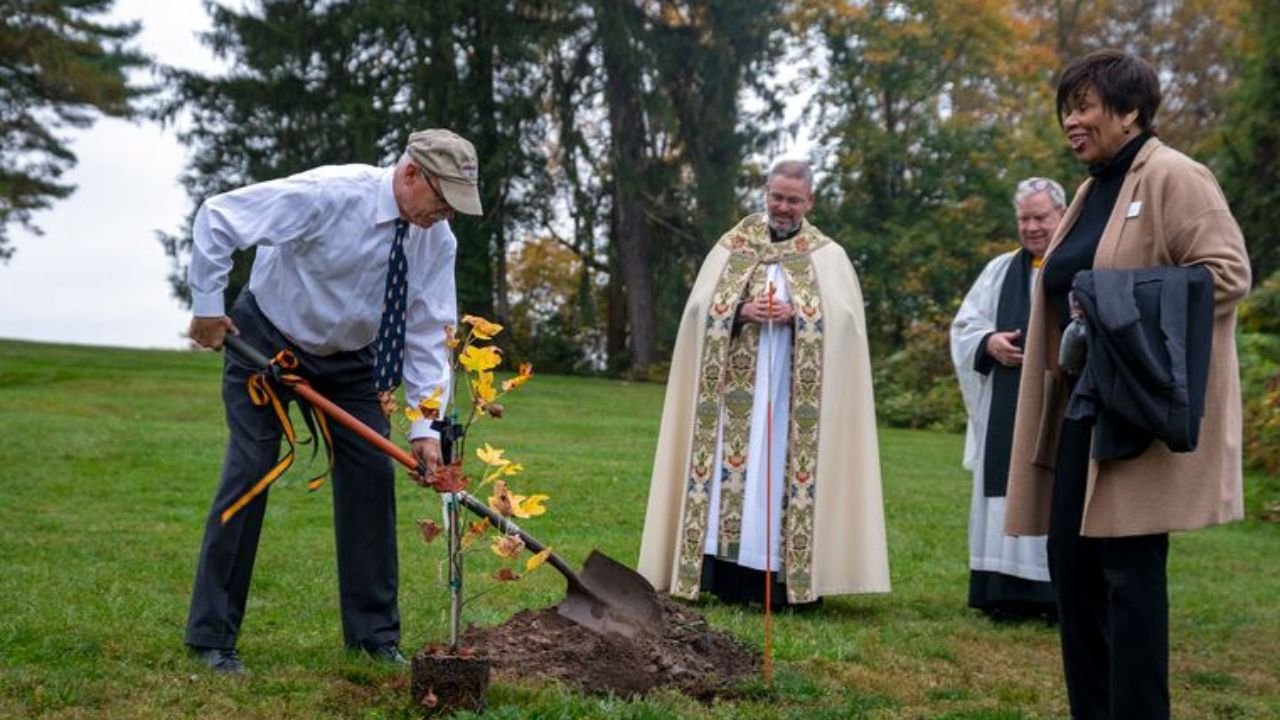George Tulip was once a beacon of hope in the mental health advocacy landscape, celebrated as a mentor who inspired countless individuals to seek support and overcome their struggles. Known for his motivational talks and outreach programs, Tulip built a reputation as a compassionate leader in the community. However, this public image has been overshadowed by allegations of abuse—a stark fall from grace that has sent shockwaves through the mental health advocacy world.
This article dives into the life of George Tulip, detailing the accusations made against him, the subsequent legal proceedings, and the impact on the community. We aim to shed light on how such events unfold and discuss what lessons can be learned to prevent similar situations in the future.
The Accusations
The accusations against George Tulip began to surface in late 2022, when several individuals came forward with troubling claims of emotional, psychological, and even physical abuse. These accusations pointed to abusive behavior that occurred in private mentorship sessions as well as public interactions.
Specific Incidents
Several survivors have detailed their alleged experiences with Tulip. Common themes involved manipulation, coercion, and dismissive attitudes toward vulnerable individuals seeking his guidance. One survivor stated, “What started as helpful advice quickly turned into a toxic power dynamic. I felt exploited and demeaned.”
Some individuals also accused Tulip of inappropriate comments and breaches of personal boundaries, leading to a growing chorus of voices that could no longer be contained.
Alleged Patterns of Behavior
The emerging patterns suggest that abuse may have been systemic rather than isolated incidents. Tulip allegedly used his position of power and influence within the community to silence criticism and maintain control over both his followers and detractors.
Legal Response
Investigations Begin
Following the accusations, local law enforcement and advocacy organizations began an in-depth investigation into Tulip’s conduct. Reports were filed, testimonies were collected, and attempts were made to verify these claims through corroborative evidence such as emails and text messages.
Legal Proceedings
George Tulip has vehemently denied the allegations, claiming they are unfounded and part of a smear campaign. Despite his denial, legal proceedings were initiated, focusing on several specific claims made by survivors. The court hearings have garnered significant media coverage, with updates frequently trending on social media platforms.
Impact on the Community
Loss of Trust
These allegations dealt a significant blow to the mental health advocacy community. George Tulip’s case has raised concerns about accountability among high-profile advocates. Survivors have expressed feeling betrayed, and organizations associated with Tulip have faced scrutiny over their vetting and governance practices.
Survivor Support
The affected individuals have come together to form support groups, finding solidarity in shared experiences. Advocacy for stronger oversight and mechanisms to report abusive behavior has grown louder, encouraging systemic change.
Broader Implications
The case has reignited discussions about power dynamics in mentorship roles, emphasizing the need for clear boundaries, ethical conduct, and avenues for reporting misconduct.
Media Coverage
Traditional Media
Tulip’s story has been extensively covered by major news outlets, with investigative reports detailing timelines, accusations, and court updates. Mainstream media’s treatment has generally been neutral, presenting facts from both the accusers’ side and Tulip’s legal defense.
Social Media
Conversely, social media platforms exploded with polarizing opinions. Several hashtags related to George Tulip trended for weeks, with some users expressing outrage and others calling for due process. This digital dialogue has amplified the visibility of the case while fostering both support and skepticism.
Lessons Learned
Accountability is Key
This case serves as a harsh lesson about the importance of accountability, even for widely respected figures. Organizations should implement stricter oversight and be poised to act swiftly when allegations arise.
Survivor-Centered Advocacy
Survivors must be given safe spaces to voice their concerns without fear of retaliation. This requires cultivating a culture of trust within the mental health community and beyond.
The Need for Ethics Training
Professionals engaging in mentorship and advocacy roles should undergo training on ethical interactions and maintaining healthy boundaries.
You May Also Like: Jann Mardenborough Wife and Racing Life Journey
Conclusion
The story of George Tulip remains a stark reminder of the complexities surrounding power and trust within advocacy circles. For the mental health community to heal and thrive, lessons must be transformed into actionable changes. Transparency, empathy, and accountability are not optional—they are essential.
FAQs
Who is George Tulip?
George Tulip was a prominent mentor and mental health advocate known for his motivational programs.
What are the allegations against George Tulip?
He is accused of emotional, psychological, and physical abuse by multiple individuals within the mental health advocacy community.
How is George Tulip responding to the accusations?
Tulip has denied all allegations, claiming they are part of a smear campaign targeting his reputation.
How has the mental health community reacted?
The accusations have caused widespread distrust, leading to calls for accountability and increased survivor support initiatives.
What lessons can be learned from George Tulip’s case?
Key takeaways include the importance of accountability, survivor advocacy, and ethical practices in mentorship and leadership roles.











